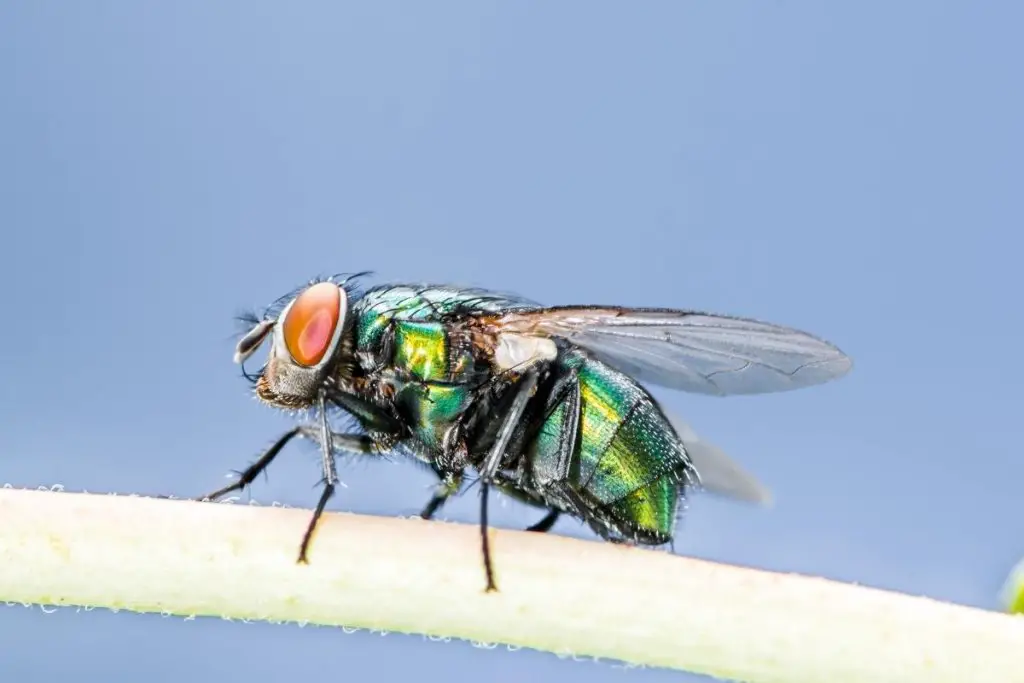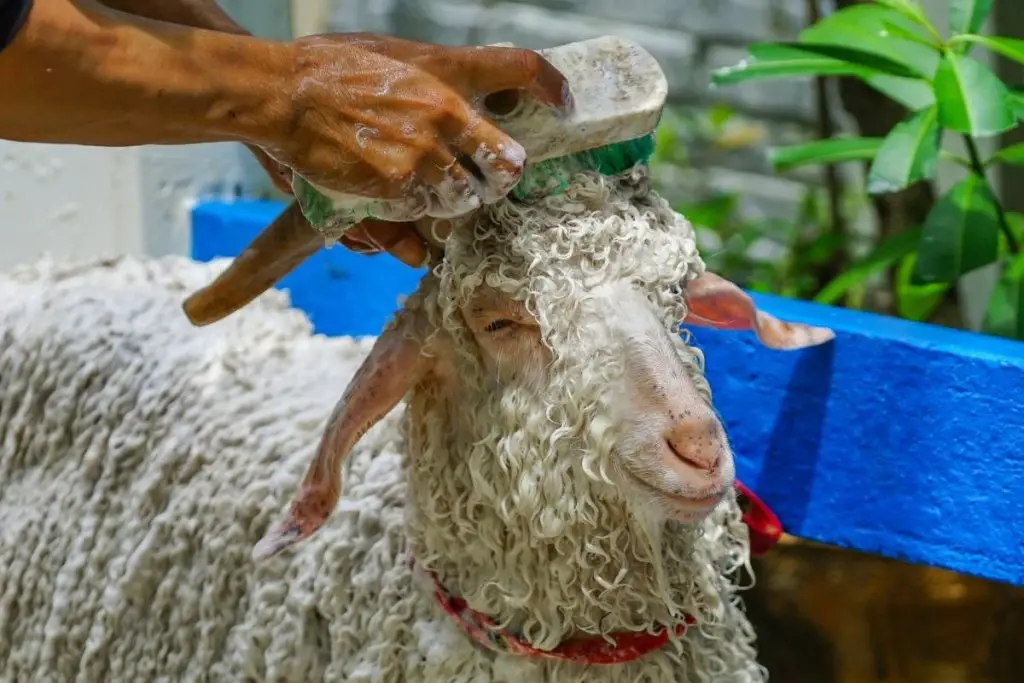To get rid of maggots on sheep, wash the infected area with soap and water or use an air compressor to clean it. Then, use spraying solutions to stop it from happening again.
Table of Contents
What to do when maggots are on your sheep
Maggots are small white worm-like larvae found on sheep’s wool and skin. Maggots feed on the flesh of a sheep and can lead to blowfly strike (a condition in which the fly lays its eggs inside the sheep’s body).
If you have a sheep with maggots, here’s what to do:
- Find out how long the maggots have been there: Look at the soiled wool around the wound and see if there is any discoloration, yellowing, foot rot, or fleece rot. These signs indicate that the maggots have recently infected the sheep (probably within the last two days).
- Wash the infected area: Clean your sheep’s wounds with warm water mixed with dishwashing liquid, shampoo, or other similar pour-on products. Carefully pour hydrogen peroxide on the wound and let it sit for about five minutes before washing it off again with the water/cleaning product mixture. Repeat this process until there are no more visible maggots on your sheep’s skin or wool coat.
- Use insecticide spray: Another way to deal with maggots is to use an insecticide spray to prevent future infestations.
- Disinfect your sheep pens: Maggots are likely living in your sheep pens. Clean the pens regularly, making sure to treat areas with manure or urine with a good pest control product so that any remaining eggs won’t hatch into maggots.
Why do sheep get maggots?

Maggots in sheep can be caused by:
- Poor-quality feed: If your sheep are eating poor-quality food, it could become a breeding ground for maggots.
- Poor hygiene: If your sheep do not have access to clean drinking water, they’ll have increased susceptibility to picking up parasites from flies and other insects.
- Illness: Illnesses that cause diarrhea can lead to the spread of disease-causing organisms.
- Excess manure and urine: Blowflies are attracted to the manure and urine trapped in sheep wool near the anus. Make sure to remove manure and urine regularly from the area your sheep sleep in, and to clean your sheep thoroughly.
How to know if your sheep have maggots
If you see flies everywhere in your yard or on your animals, maggots are likely a problem.
Often, you can see maggots just by examining your sheep’s wool closely. Look for a white, worm-like creature about an inch long.
If you find maggots in the wool of one of your sheep, it’s likely to affect the rest of your flock, too. Make sure to clean any affected sheep thoroughly, as well as your sheep barn.
Preventing maggots and flystrike on sheep

To prevent maggots and flystrike, here’s what you can do:
- Watch for signs of disease: If there are any signs of disease, such as hair loss or diarrhea, take the sheep to your veterinarian immediately. These could be precursors to conditions that attract maggots, which can spread throughout your flock.
- Look regularly for maggots with a magnifying glass: Determine if maggots are present on your sheep by examining the affected area with a magnifying glass. If you see any maggots in the wound, they might be eating into the tissue.
- Control the flies. Take measures to reduce flies by cleaning animal waste and excess food regularly.
- Use fly repellent. Most farm stores sell sprays or tinctures (liquid extracts) with essential oils like cedarwood oil or clove oil, which can help keep flies away.

